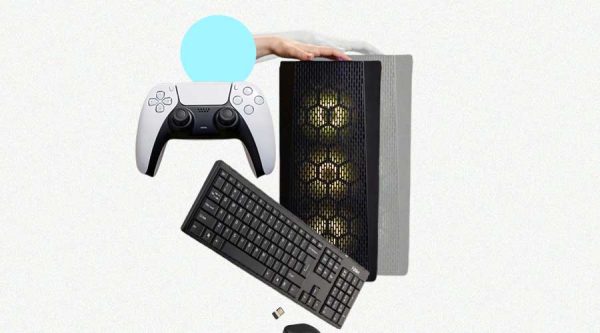![]()
Silicon Valley’s audacious attempt to win big on future sci-fi devices that will beat smartphones
Small, flashing devices affixed to the chests of employees at Humane, a company housed in an old horse barn in San Francisco’s SoMa district, produced a wave of gentle chirps. AI Pin, the result of five years, $240 million in funding, 25 patents, a constant drumbeat of excitement, and collaborations with leading tech companies like OpenAI, Microsoft, and Salesforce, was only weeks away from being unveiled to the public.
Their goal? Nothing short of freeing the entire globe from the addiction to smartphones. What’s the fix? More technology. Imran Chaudhri and Bethany Bongiorno, the husband and wife team behind Humane, envision a civilization freer from the screens that their former employer, Apple, made so ubiquitous.
The computer can practically take a backseat thanks to artificial intelligence, according to Chaudhri. The pin is being marketed as the world’s first artificially intelligent gadget. It can be operated by voice command, touchpad tapping, or hand projection of a laser display onto the palm. The virtual assistant on the gadget can perform many tasks in an instant, such as texting, playing music, taking pictures, making phone calls, and translating real-time conversations into multiple languages.
The system can use artificial intelligence (AI) to answer questions such as “How should I load the dishwasher?” and summarize incoming messages with the simple command “Catch me up.” Technology has moved on from Siri, Alexa, and Google Assistant.
It doesn’t require clear context to move from one inquiry to the next in a discourse. Additionally, unlike other systems that need the user to repeat the text from start to finish to amend a mistake, it may change a single word in a dictated message. It also operates from a device that looks a lot like a Star Trek badge.
Insiders in tech consider it a moonshot. It is a science fiction fantasy to outsiders. The upcoming weeks at Humane are causing a great deal of concern. There is a vast array of wearable technology items in the tech industry that have not gained traction. Next year, Humane plans to start shipping the pins. In the first year, it hopes to sell about 100,000 pins for $699, with a $24 monthly subscription required. (The year after the device’s 2001 release, Apple sold 381,000 iPods.)
People will need to become familiar with the new Cosmos operating system and be willing to get new phone numbers for the device for the startup to flourish. (A separate wireless plan is included with the pin.) They will have to substitute wide-angle shots for zoomed-in shots and dictate instead of typing texts. They will first need to exercise patience since several features like object identification and videos will not be available. Additionally, as in a few of the company’s demos for The New York Times, the pin might occasionally be glitchy.
In an interview, OpenAI CEO Sam Altman stated that he anticipated artificial intelligence would play “a huge part” in how humans interact with computers. He has invested in Humane and Rewind AI, which plans to develop a necklace that records people’s hearing and speech. He has also talked of collaborating with Apple’s former top designer, Jony Ive, to develop an AI device that shares Humane’s goals.
Being the first AI-focused product to hit the market gives Humane an advantage, but Altman warned that success was not certain. “Customers will have to make that decision,” he stated. “Perhaps this is too much to ask, or perhaps people are thinking, ‘This is way better than my phone.'” He continued, “A lot of technology that appeared to be a sure bet ends up selling for 90% off at Best Buy.”



